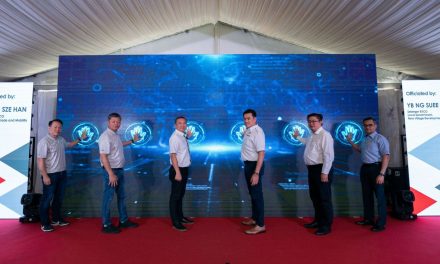A concerted effort from all parties is needed to preparefor a future employment market
EMPLOYMENT is an acknowledged goal of attending university, and something that every university seeks to prepare their students for.
Most universities publish statistics about the employability, and salaries, of their graduates. Different ranking systems and league tables consider graduate employability a key metric that partly determines the world standing of universities.
For most of the 20th century, demand continually grew for skilled individuals in technology, sciences, business and finance, and universities responded by growing their offering in these areas. When the jobs available in the employment market are known, it is not difficult to prepare students for them.
Even when there were developments that created novel jobs, IT professionals for example, that growth in demand and rate of change were at a manageable pace and universities and employers were able to adequately respond to the challenge and produce IT courses fairly quickly.
The challenge we face today is that both the academic and the business world expect a rapid rate of change in the job market. A 2017 study by the Institute for the Future estimated that “around 85% of the jobs that today’s learners will be doing in 2030 haven’t been invented yet.”
The change in employability outlook is influenced by the trend that machines, powered by Artificial Intelligence and Big Data, are becoming more capable of performing tasks that used to be exclusively in the human realm.
So how can we prepare our students for jobs that do not exist yet? Is that even possible? I say the answer is YES. However, this requires a concerted effort and transformative thinking on the part of students, universities, employers and policy makers.
Below are the four shifts that are necessary to achieve this. The first shift is curriculum focused. Besides learning skills and attributes that are valued by employers today, students should spend more time developing adaptability, mental and emotional resilience and also learn to be able to deal with change. Courses in emotional intelligence, for example, should become a core requirement for all university students where they inculcate the attributes of self-awareness, self-management, social awareness and relationship management.
The second shift is pedagogical. Instilling skills that are valued in all job markets, and robots are not excelling at, such as teamworking, communication, creativity, critical thinking and judgement require different teaching methods. These skills are difficult to teach, acquire and measure in the current education system that is built on standardisation and “one size fits all.”
The third shift is a mindset one. Instead of viewing university education as a journey that ends with employment, students ought to view it a major milestone of a longer continuous lifelong learning journey.
The fourth is to shift thinking from concentrating on the degrees students are studying towards the challenges they want to address. The grand challenges we are facing in areas such as energy, environment, security and health are here to stay and framing one’s employability choices around the challenges will provide motivation and a sense of direction.
Beyond the right job
Mastering these four shifts will help future proof our youth and prepare them to quit the losing game of trying to compete with the robots and focus on our emotional and creative potentials that make us really humans. Education should empower us beyond getting the right job, it should foster happiness, a sense of purpose and help us lead impactful lives.
Universities respond differently to the challenge of future proofing our youth. In order to master the four main shifts highlighted above, Heriot-Watt University Malaysia created the EmPOWER programme that all undergraduate students go through. It aims at nurturing teamwork, creativity, critical thinking, emotional intelligence, resilience, happiness and lifelong learning. These skills are developed in a structured manner through group and individual work while coached and mentored by personal tutors and well trained instructors. The skills are certified and documented in a special EmPOWER Transcript that helps communicate the acquired skills to potential employers.
High quality academic programmes emphasise building Human Capital. The EmPOWER programme complements that by helping students ensure that they have Social Capital, characterised by high value networks that can support them throughout their professional lives, and also Emotional Capital, as they develop self-awareness and are able to leverage their emotional resilience to keep their focus and motivation during times of change and disruption.
The combination of Human, Social and Emotional Capital will enable the students not only to remain relevant in a highly changing job market, but will also give them the ability to shape that market and influence it.
PROF MUSHTAK AL-ATABI
Provost and CEO
Heriot-Watt University Malaysia
© ![]()








